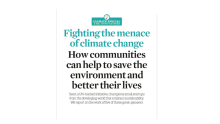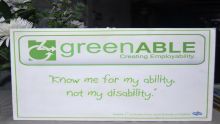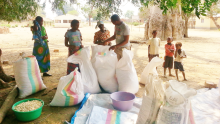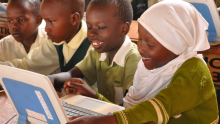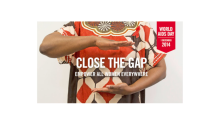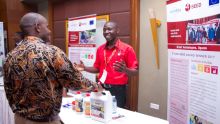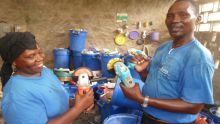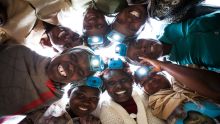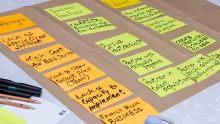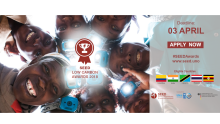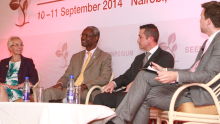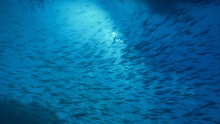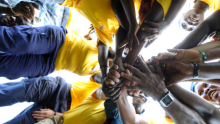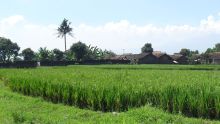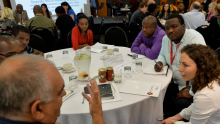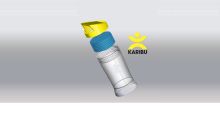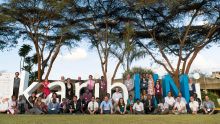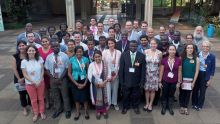SEED in collaboration with ANDE network organised the “start-up hacks” as part of the Sankalp Africa Summit that took place on 5-6 February 2015 in Nairobi, Kenya. Innovative and inclusive financing was one of the key topics of this year’s forum.
How can local communities help to save the environment and better their lives? To answer this question the Observer Tech Monthly of the Guardian spoke with Helen Marquard, Executive Director of SEED.
Over the last four years, SEED has hosted a series of unique multi-stakeholder for a focussed on the Green Economy and Africa - the SEED Symposia - where each year innovative and promising start-up enterprises, that won a SEED Award for their remarkable efforts to address social and environmental challenges at the grassroots, are presented.
- They are one of the most visually-enthralling trees on the planet. The ancient Baobab – endemic mostly to semi-arid regions of tropical Africa including Mozambique – can live for over 1000 years.
- SEED’s achievements in 2014 are captured in the 2014 SEED Annual Report.
- Small, micro and medium enterprises (SMMEs) contribute an estimated 12 per cent towards Namibia’s gross domestic product and employ about 20 per cent of the country’s workforce.
- SEED and its hosting partner Adelpi Research participated in the launch of the Inclusive Business Action Network (IB Action Network) that took place on 18-20 November 2014 in Berlin, Germany.
- UN Women has now launched iLearn, a global mobile-learning platform for and by women entrepreneurs.
SMMEs like the SEED Winner from Rwanda have and continue to make their own valuable contributions to Closing the Gap by creating economic opportunities for HIV-infected as well as affected women and their families.
- As one of the poorest countries in the world, Malawi is characterised by a largely rural population; 84 per cent of Malawi’s population lives outside cities and depends on agriculture as their primary source of income.
- When UNEP, UNDP and IUCN decided to register the SEED Initiative as a Type II partnership at the 2002 World Summit on Sustainable Development, they clearly thought they were on to something – but possibly not quite what SEED is now.
- ‘Teach a man how to fish‘ or, as in this case, ‘ride a bike’, espouses the core aim of the founders of a social and green enterprise that is intent on improving the living standards of rural Mozambicans.
Current ways of production and consumption are not sustainable, disregarding the efficient use of natural resources, the minimization of toxic materials and the emission of waste.
- The exponential growth of small, micro and medium enterprises (SMMEs) in Africa, Asia and Latin America has contributed significantly to the burgeoning green economy.
- Particularly women are increasingly perceived to play a significant role in realising the transformation to a greener economy and poverty reduction in countries with developing economies.
- Africa has some of the fastest-growing economies in the world, but many people remain excluded from the benefit of this growth with almost half of the population in sub-Saharan Africa living on less than USD1.25 per day.
- With the target date for the Millennium Development Goals (MDGs) approaching, consultations are taking place globally to draw out insights that can contribute to the “Post-2015 Development Agenda and Framework”.
- The 2018 SEED Low Carbon Awards are available for enterprises in Colombia, India, Tanzania, Thailand and Uganda.
- SEED was invited to partake in the sixth Global Social Business Summit (GSBS 2014) that is taking place in Mexico City on 27-28 November 2014 under the theme: “Shaping Social Business to Shape the World of 2020”.
- Nairobi plays host to one of the largest gatherings of start-up social and environmental enterprises ever, as 41 green entrepreneurs are celebrated at the 2014 SEED Awards Africa Symposium.
SEED takes part in the UNEA Side Event: “UNEP, the Sustainable Development Goals and Business”, which is organised by the Business Green Economies Dialogue Project in partnership with The International Organisation of Employers (IOE) and The International Council of Chemicals Associations (ICCA).
This year the IBD has the overarching theme Island Biodiversity, paying tribute to the fact that islands and their surrounding near-shore marine areas constitute unique ecosystems.
SEED was invited to partake in the joint thematic debate/forum on partnerships, held on 09 and 10 April 2014 at the United Nations Headquarters in New York.
SEED will participate in the third Thematic Breakout Session ‘Social inclusion and poverty reduction’.
- Start-up social and environmental entrepreneurs who have developed innovative products or services and are working with local communities can win a tailor-made business support package through the 2014 SEED Awards, which open for nominations today.
- Over 150 participants from government, private sector, media, academia, development, and civil society organisations gathered at the SEED South Africa Symposium, held over 19 and 20 March 2014.
- "The Solar Women of Totogalpa" from Nicaraguan 2008 SEED Award Winner "Lighting Up Hope And Communities" are portrayed in the documentary „Adelante Con El Sol“.
- Adam Camenzuli, CEO of 2013 SEED Winner KARIBU Solar Power, is featured in an article about the great potential of Solar Power in Africa in this month's Forbes Africa.
- The 34 winners of the 2013 SEED Awards were announced today.
On October 31, the 2013 SEED Symposium and International Awards Ceremony took place in Nairobi in the framework of the Global South-South Development Expo (GSSD Expo) organised by the UN Office for South-South Cooperation and hosted by UNEP.

